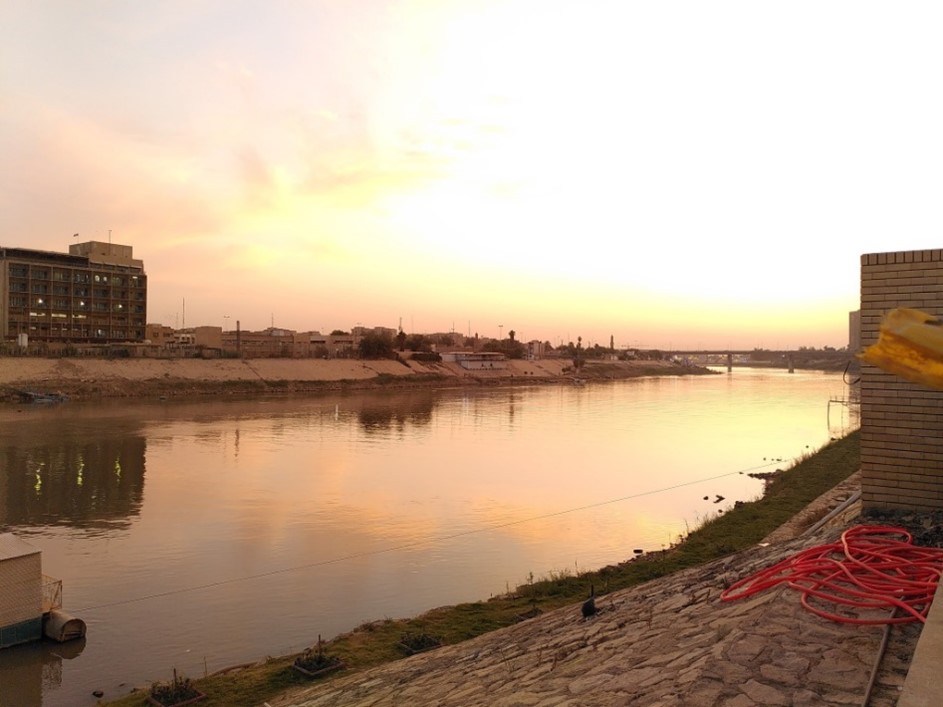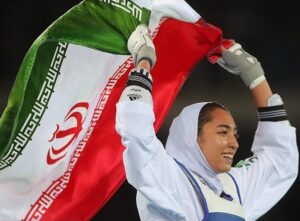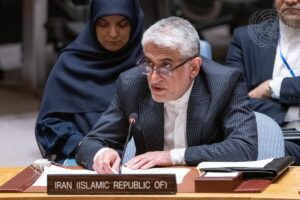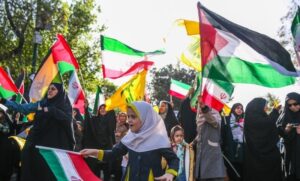Visiting Baghdad, Iraq, during a trip to the region in May of 2022, I got to see and experience various aspects of the city, including several historical sites, such as the famous al-Mutanabbi street where one of Baghdad’s oldest cafes, Shahbandar, is located. Together with Kawa Hassan, director of the Stimson Center’s Middle East and North Africa Program, I talked to political activists and political science students about the aspirations they have for Iraq and the role of the international community in the country. In this field note, I will summarize some of my observations.
Security: Perception and Reality
Entering Iraq was not difficult, as the country has since March 2021 made visas on arrival possible for 37 countries. Transport from the airport to the hotel was with an unarmored vehicle, and my colleagues and I were able to move through parts of the city by foot.
This seemed in contradiction to the fact that many employees of international organizations and embassies based in the Iraqi capital are confined to their housing compound, offices, and some green-lighted areas in the city. Embassies are in the fortified Green Zone, to which citizens have limited access, and diplomats follow a strict security protocol when they leave this International Zone (IZ). The Green Zone is also home to many Iraqi political leaders and the country’s parliament.
In five days, I was able to see parts of Baghdad that some international colleagues who have been in the country for months can’t visit.
Strangely, this meant that in five days I was able to see parts of Baghdad that some international colleagues who have been in the country for months can’t visit. Not for a moment did I feel unsafe. Nevertheless, the improvements made in security should not be taken for granted. Private security companies still surround hotels and some neighborhoods in Baghdad remain off-limits, as the threat of attacks and kidnappings remains.
Apocalyptic Baghdad: the Threat of Sand and Dust Storms
While Iraq has become safer when it comes to conventional security threats, the unconventional or indirect security threat of environmental degradation has increased. During the visit, a sand and dust storm (SDS) blanketed Baghdad, the eighth storm since April. Due to climate change and decades of poor agricultural and water-management, including a lack of cross-border cooperation, the number of sand and dust storms has heavily increased. Climate change and water mismanagement is also reflected in the low level of the Tigris river, which runs through Baghdad.
While Iraq has become safer when it comes to conventional security threats, the unconventional or indirect security threat of environmental degradation has increased
Environmental degradation has a major impact on agriculture and public health. The May 16 sandstorm, for example, put some 4000 people in the hospital. In addition, it can exacerbate social tensions, such as tribal and communal conflict. Government corruption and weak governance have formed an obstacle to dealing with the environmental issues at hand. And although there are a number of Iraqi environmental civil society organizations, they have been threatened by militias and certain elements of the security services, not in the least because of their association with the 2018-2019 Tishreen protest movement.

Vibrant Youth: The Tishreen Movement and Iraq’s Future
Government corruption and inefficiency was one of the drivers of the Tishreen protest movement. This became clear during our roundtable discussion with political activists and students at the Al-Bayan Center for Planning and Strategic Studies. This movement, also referred to as the October Revolution, was initially fueled by social grievances and the lack of basic services, but eventually called for radical change to the political order, particularly to the existing ethno-sectarianism, under the slogan “Nurid Watan”, we want a homeland.
يسرني إدارة ورشة العمل الحوارية والتي حاورت فيها كل من @Kawa__Hassan و @desicusters. ناقشنا حالة المشاركة السياسية في #العراق لغرض زيادة المعرفة لنشطاء سياسيون شباب وأعضاء في أحزاب تشرين.
— Karrar Rifaat (@karrar_rifaat) May 23, 2022
فضلاً عن مناقشة الدروس المستفادة من دبلوماسية المسار الثاني لبناء الثقة بين الدولة والمجتمع. pic.twitter.com/moA2socaeU
The discussion focused on political participation, in particular if newly formed parties should boycott or participate in national elections, a point of discussion during the recent Iraqi elections in October 2021. There was no one answer to this question. While some found that boycotting is the preferred option, reasoning that once parties enter the political system, they risk becoming part of the existing corruption. Others saw participation in the elections as a way to increase political influence, although this is hindered by low voter turnout and fragmentation amongst the new political parties. A possible alternative to the dilemma would be to enter elections, but not become part of the ruling coalition. This way, new political parties could gain seats in parliament and from that position form alliances with like-minded actors.
An additional topic of the conversation was the relationship between the Iraqi government and the international community, which was mentioned to be shaped by a securitized lens through which this latter looks at the region. European governments, for example, have prioritized relations with the government on security, mainly counter-terrorism and migrant control, in addition to securing economic interests in Iraq.
The securitized lens through which the international community continues to look at Iraq has led to it at times literally and figuratively being detached from Iraqi society.
Conclusion
The securitized lens through which the international community continues to look at Iraq has led to it at times literally and figuratively being detached from Iraqi society. For the protest movement this has meant that it has continuously been analyzed in relation to Iraq’s stability, including its use as proxy for other regional actors. However, the discussion with young political activists and students clearly showed their commitment to reform in Iraq, and the Tishreen protest movement will remain a challenge to the current political order. Therefore, the international community should reconsider its relations with Iraq to include support for this movement and civil society in general. Examples include supporting academic and cultural exchange, supporting political and economic education, and cooperation with civil society organizations on countering environmental degradation. I hope to visit Baghdad again soon to further discuss concrete examples of how this cooperation would look like between the EU and European countries, and Iraq specifically.




